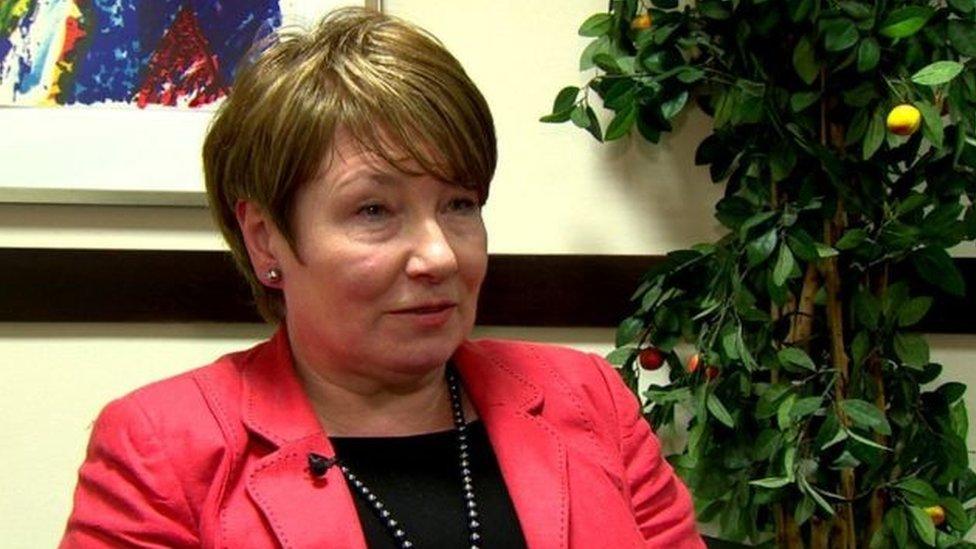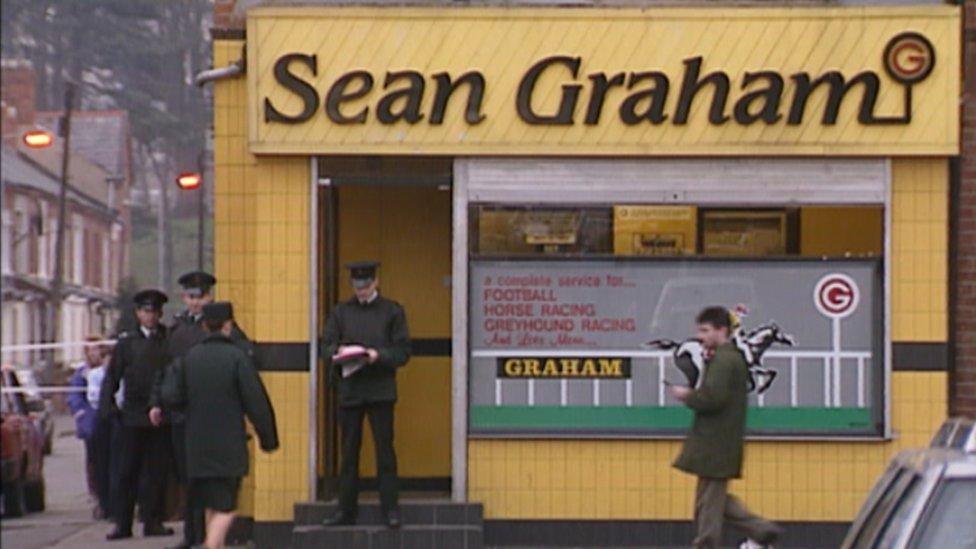Ombudsman can access Troubles records in PSNI arrangement
- Published

Marie Anderson was appointed as the Police Ombudsman last year
The Police Ombudsman's office can become directly involved in searches of records held on the Troubles under a new agreement with the PSNI.
The arrangement aims to ensure investigations by the watchdog have "best access" to information.
It follows the PSNI discovering it had not given an Ombudsman inquiry everything in its archives related to a loyalist gun attack in 1992.
The new agreement involved months of discussions.
Under it, Ombudsman investigators "can have direct access to all PSNI systems".
It means, "when lawful and appropriate", they can direct and be present for trawls of the information archive "for specific matters under investigation".
The PSNI holds 44m document items relating to three decades of violence in Northern Ireland.
Last year, it issued an apology when it emerged it had initially failed to hand over all records related to the attack on Sean Graham's bookmakers shop on Belfast's Ormeau Road in 1992.

The attack in February 1992 was carried out by loyalist paramilitaries
Five Catholics were murdered in the shooting carried out by the Ulster Defence Association (UDA).
The Ombudsman, Marie Anderson, said: "The public must have confidence that police provide my office with all the information it asks for.
"Both the chief constable and I agree such disclosure is central to confidence in both our organisations.
"I believe this agreement will allow for better searching for and sharing of this information."
Dealing with the past
The Chief Constable, Simon Byrne, also welcomed the move, which he said followed "much hard work."
In a statement, he said "the effective disclosure of information" is important for public confidence, "particularly in relation to dealing with the past."
In a separate development, Ms Anderson has told The Irish News she wants to broaden her powers to require former police officers to co-operate with investigations.
She is to ask Justice Minister Naomi Long to address the issue by way of new legislation.
Currently, ex-officers are not legally obliged to participate in Ombudsman inquiries.
In an interview with the paper, Ms Anderson said this was "a frustration that can mean a challenge for investigating the past".
- Published30 October 2019

- Published16 July 2019
